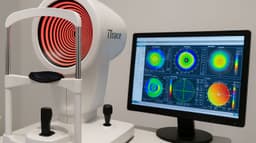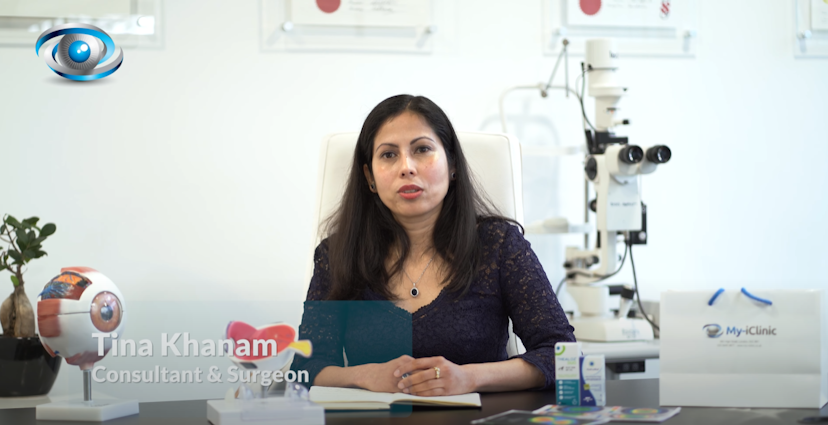
Could Gold Nanoparticles Be the Future of Vision Correction?
Laser precision and implanted lenses already offer millions the gift of clear sight! However, scientists are pushing the boundaries even further — with gold. Recent research has revealed a groundbreaking technique using gold nanoparticles to stimulate damaged retinas and potentially restore vision in patients with degenerative eye diseases.
At My-iClinic in North London, we’ve always been at the cutting edge of vision correction. This new development not only excites us — it also fits perfectly within the direction modern eye care is heading: more personalised, less invasive, and powered by intelligent technology.
The Science: Gold Nanoparticles and Light Stimulation
In a study led by researchers at Brown University, scientists injected ultra-tiny gold nanoparticles into the retinas of mice suffering from vision loss. These particles were designed to respond to near-infrared light, producing a subtle heat reaction that activates the remaining healthy cells in the retina — effectively bypassing damaged photoreceptors.
According to the researchers, this method partially restored sight in mice, and the technique showed promise as a non-invasive alternative to existing retinal implants or genetic therapies.
Read more on Brown University's official news site
While still in the early stages, the findings hint at a future where gold-based nanotherapy could help treat conditions like macular degeneration, retinitis pigmentosa, or even optic nerve damage — without the need for major surgery.
What This Means for Vision Correction Today
At My-iClinic, we welcome these kinds of innovations — not just as potential future treatments, but as part of a broader trend toward minimally invasive vision restoration. For patients considering laser eye surgery or ICL (Implantable Collamer Lens) procedures, it raises key insights:
- Less Invasive Futures: Just as ICLs offer a reversible, tissue-sparing alternative to LASIK, gold nanoparticle treatments may offer even less invasive ways to restore or enhance sight.
- Adjunctive Therapy: In the future, gold-based stimulation may be used alongside laser surgery to optimise vision in patients with complex eye conditions or early-stage retinal damage.
- Expanded Hope: For patients currently ineligible for laser or lens-based treatments due to degenerative conditions, this research opens the door to potential solutions once thought impossible.
My-iClinic’s Vision: Innovation with Precision
While treatments like gold nanoparticle therapy are still years away from clinical application, our commitment at My-iClinic is to stay at the forefront of this evolving landscape. We continue to invest in the latest diagnostic imaging, AI-assisted treatment planning, and surgical technology to provide our patients with the best care — today and tomorrow.
Whether you’re looking to correct short-sightedness with SMILE or LASIK, or you’re exploring advanced solutions like ICLs or Light Adjustable Lenses, we’ll guide you through the options that meet your needs — and keep you informed about the future of eye care.

Explore What’s Possible with My-iClinic
If you're curious about where vision correction is heading — or you want to take advantage of the most advanced treatments available now — book a consultation with one of our specialists at My-iClinic in North London.
We’re not just keeping up with the future of eye care — we’re helping shape it.
Find out more by Speaking to our team









